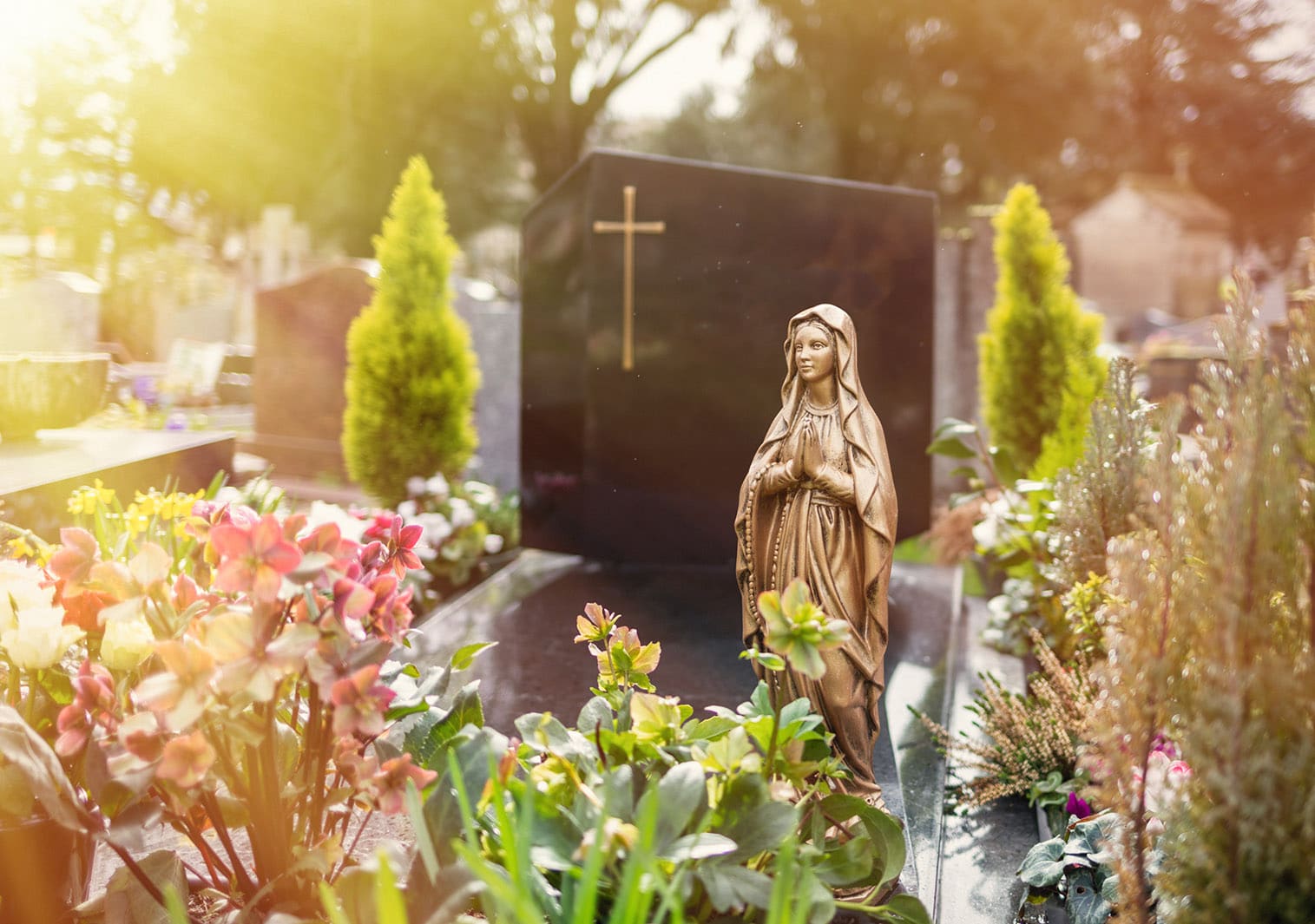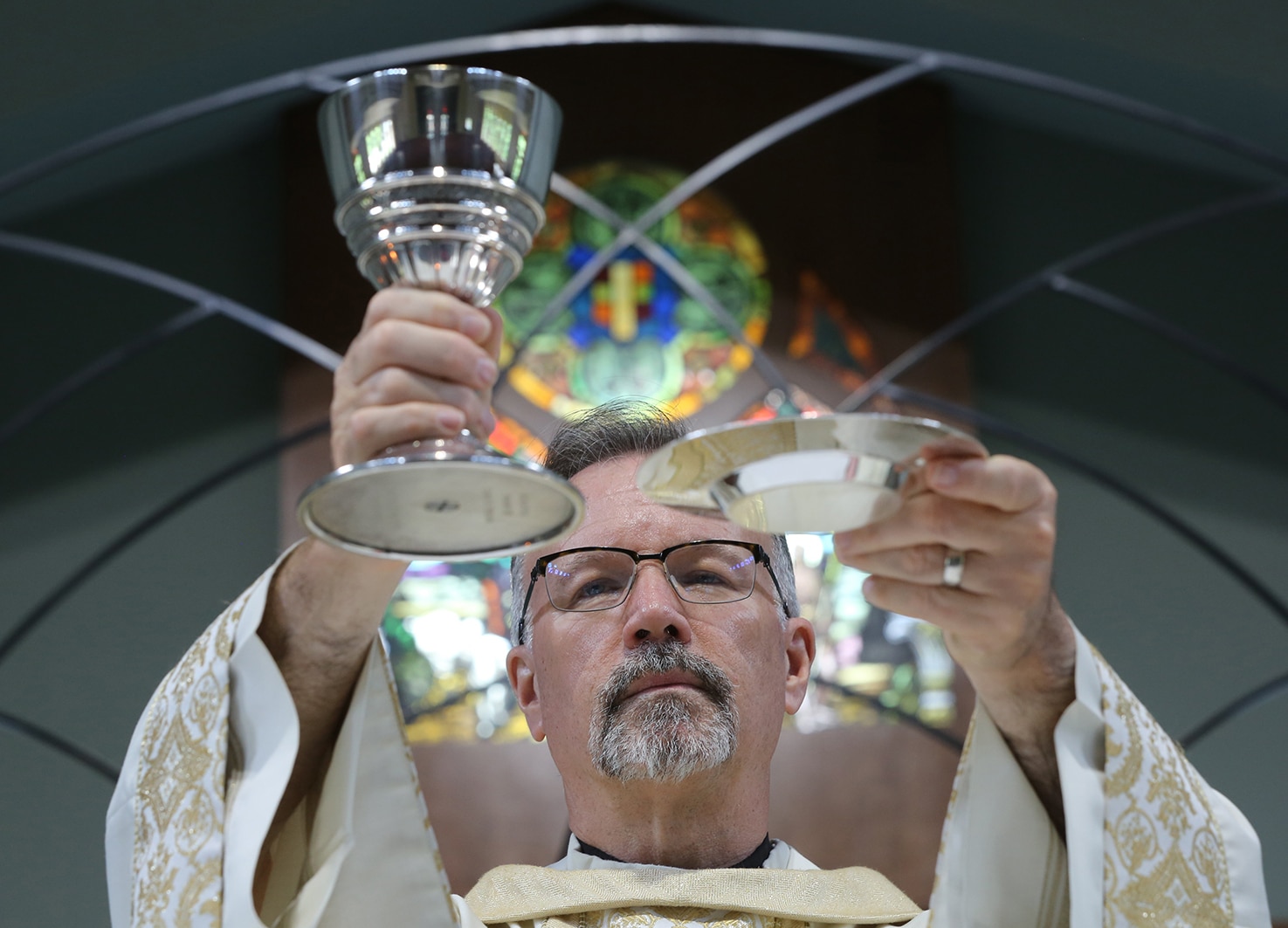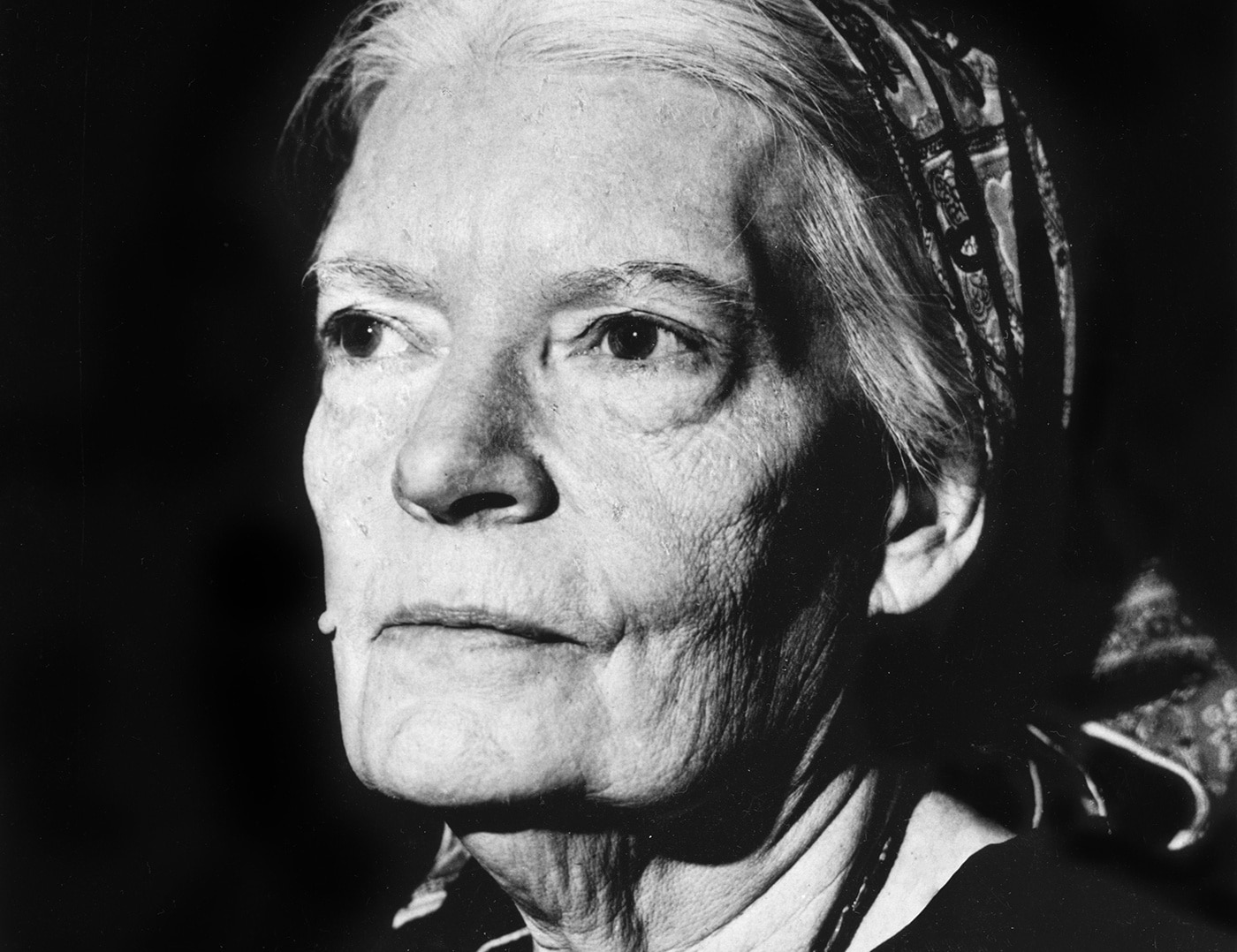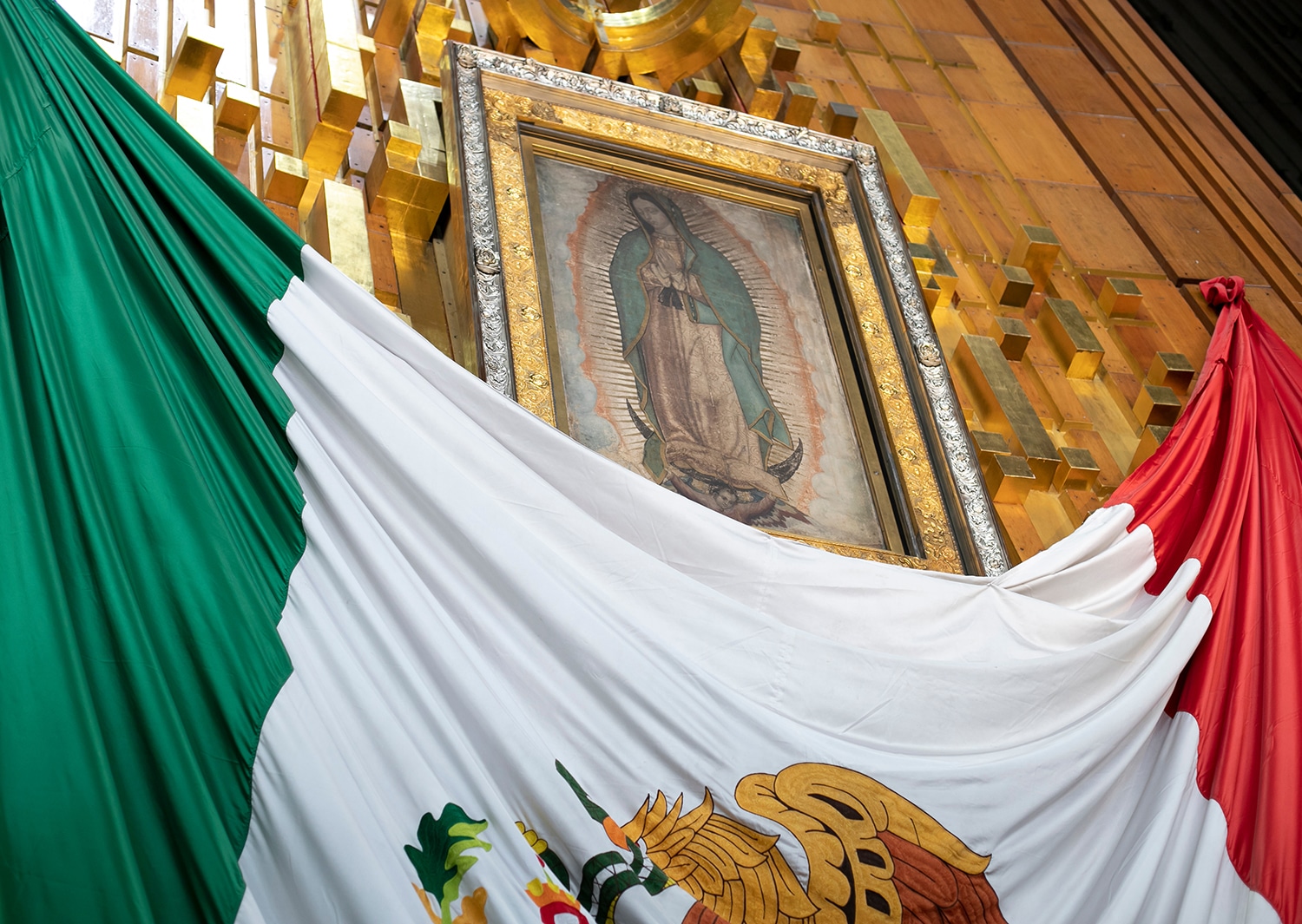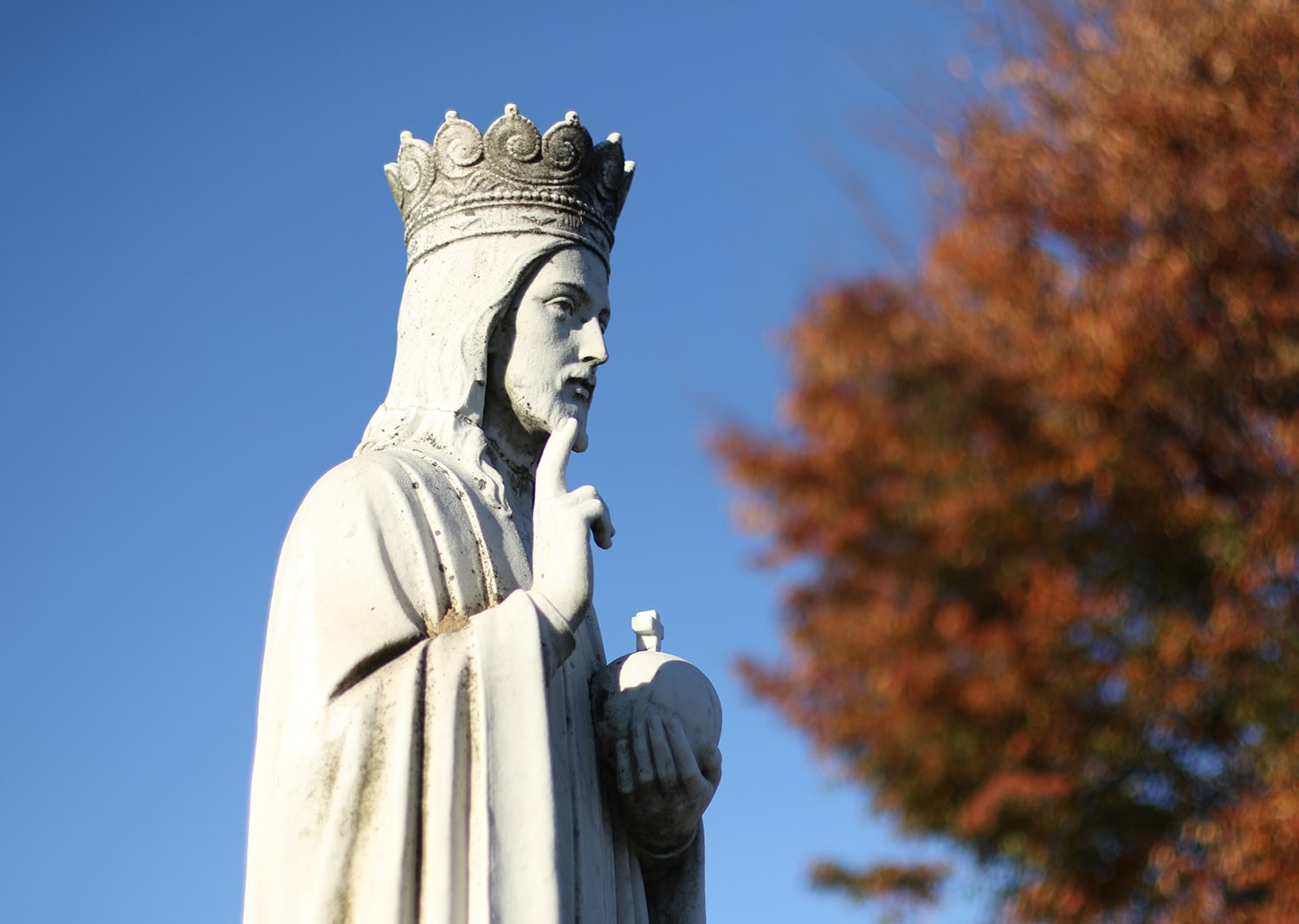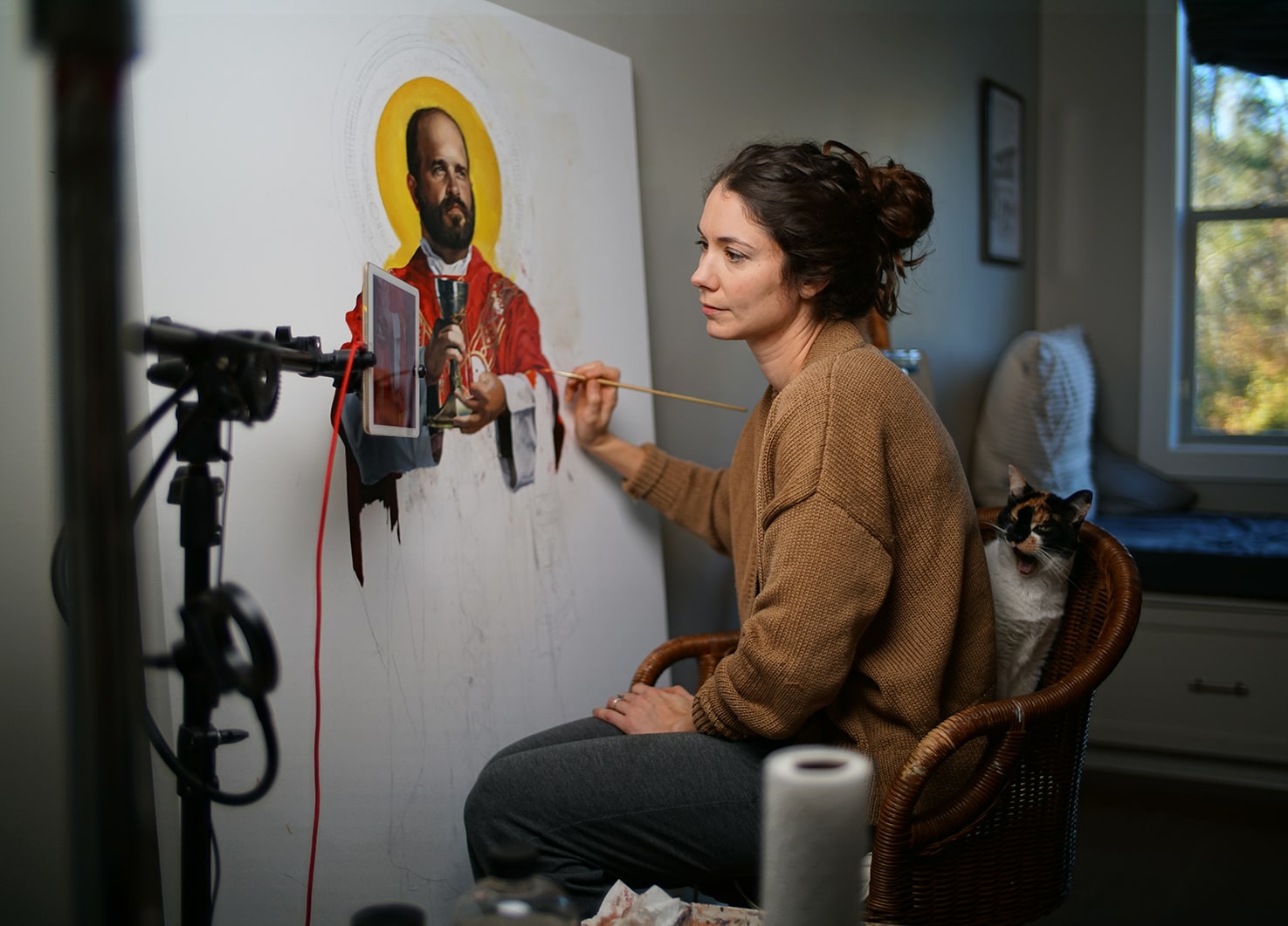Each headstone in a Catholic graveyard is a type of signpost testifying to truths of the Faith, including one’s eternal destination.
“Every person that’s in there is awaiting the Resurrection. So, it’s a hopeful place, not a sad or a scary place,” said Deacon Dave Holland about cemeteries. “It’s where our body and our soul is going to be reunited when Christ comes again.”
Deacon Holland is the parish relationship manager with Catholic Funeral & Cemetery Services (CFCS) of the Diocese of Oakland. For nearly 20 years he’s been working with CFCS, a charitable organization which provides mortuary, funeral and cemetery services.
Deacon Holland is passionate about the role of Catholic cemeteries as well as the importance of one’s mortal remains being within one. He pointed to the fact that once a month there’s a Mass offered for the repose of the souls of those whose final resting place is a cemetery that is an official affiliate of CFCS.
“Therefore, everybody is prayed for constantly. It’s why I’m looking forward to the day when I’m placed in a Catholic cemetery, because I’ll be prayed for — forever,” laughed Deacon Holland. “That’s a great consolation to me.”
Deacon Holland would want this consolation for others, including those who otherwise wouldn’t be able to afford funeral, cremation and cemetery services.
“Our faith has to be a living faith and so, therefore, if we believe everyone should be in a Catholic cemetery, and they can’t be there because they can’t afford it, then we have to help them to get there,” he said.
The Mother Teresa Program offered by CFCS does just that.
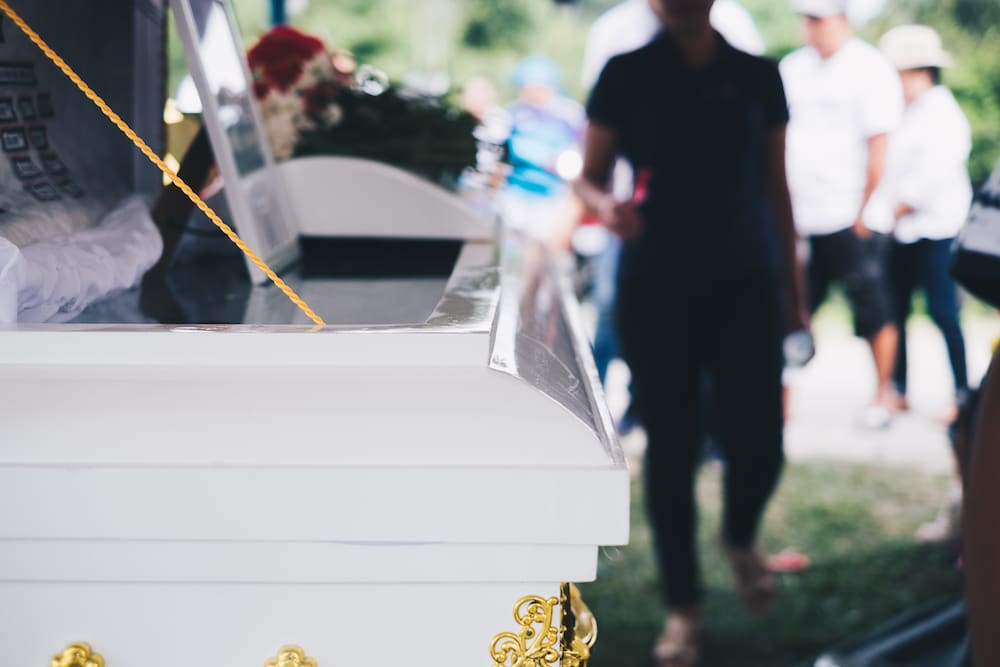
How it works
Depending on financial need, the mission program may provide partial or complete funeral, burial or inurnment services in accordance with the Order of Christian Funerals.
“We provide various levels of assistance for funerals and [services pertaining to] cemeteries for those who come to us and they are unable to provide the full financial cost of … either a cemetery burial … or a cremation with an urn,” said Mark Pereira, the outreach manager with CFCS. “And so, depending on the level of services that they need, we provide that for them.”
In this way, the Mother Teresa Program enables those who are economically disadvantaged to receive sacred and dignified end-of-life services.
This initiative is part of CFCS’s ministry, which Pereira said takes up the corporal work of mercy of burying the dead.
“These are works of mercy, they’re charity,” he said. “The charity of the Catholic faith says that we take care of the poor. It’s God’s command.”
Deacon Holland noted that for those who are under financial strain, if they do not benefit from the Mother Teresa program, they would typically “have their loved ones cremated because it’s the cheapest thing to do.”
“And when they have them cremated, they normally bring them home, or they scatter [their ashes], or they do something else with them. But they don’t come to the cemetery because they don’t think they can afford it. So, there’s … a lot of cremated remains in people’s homes,” said Deacon Holland.
Individual circumstances
While the program is for “families who are in need,” Pereira explained that there can be a range of need involved. Accordingly, based on economic circumstances and personal preferences, each family’s situation, as well as the support they receive, is unique.
Pereira recalled an immigrant family he worked with who were aided through the Mother Teresa Program.
The couple had two young daughters. They had just moved here, said Pereira. “They were just getting situated.”
A fellow Catholic family had welcomed this family into their home while they got established. Just as the husband acquired work, the wife passed away in an accident.
“He just did not have the means to take care of the unexpected loss of his wife,” said Pereira. “He had literally no money. … CFCS took care of everything,” Pereira said.
At the committal, the father introduced Pereira to his daughters, one of whom thanked the CFCS staff member for supporting her family through the Mother Teresa Program.
“She knew that [her] mom got a grand funeral and a grand burial because of the human dignity that she knew her mom was possessed with,” said Pereira. “That little girl will always remember that. [She] will always remember that act of love from the Catholic Church.”
“I’m the one that was privileged,” said Pereira of this experience. “These moments bring me into union with God. They’re so overwhelmingly powerful.”
“You are working with those who are suffering,” said Pereira. “They leave the remnants of who they are in your heart.”
Who it helps
Pereira explained that the program will benefit those in need, regardless of their religious affiliation. He noted that, in “Christian charity,” this is an upholding of the “dignity of the person” independent of the faith of that individual.
That said, the assistance is provided through contact with a priest. “You don’t necessarily have to be a practicing Catholic, but you do have to go to the parish and talk to the pastor,” Pereira said. “So, there’s always this pastoral care part of it.”
“We’ll take the pastor’s testimony, and then we’ll start working with the family directly,” he said. “That’s really all that we require.”
The support must also take place through official CFCS affiliate cemeteries, specifically those participating in the program. Such Catholic cemeteries are within dioceses throughout the country including in San José, Youngstown, Toledo, Detroit and Honolulu.
Pereira believes in the importance of this program for those directly impacted as well as for the larger community. “It’s a reminder to the greater society as a whole, that these people are important, that they’re our families, they’re part of the human family,” said Pereira. “It’s the constant reminder that we all are vulnerable. We all are mortal; we all are in the same family.”
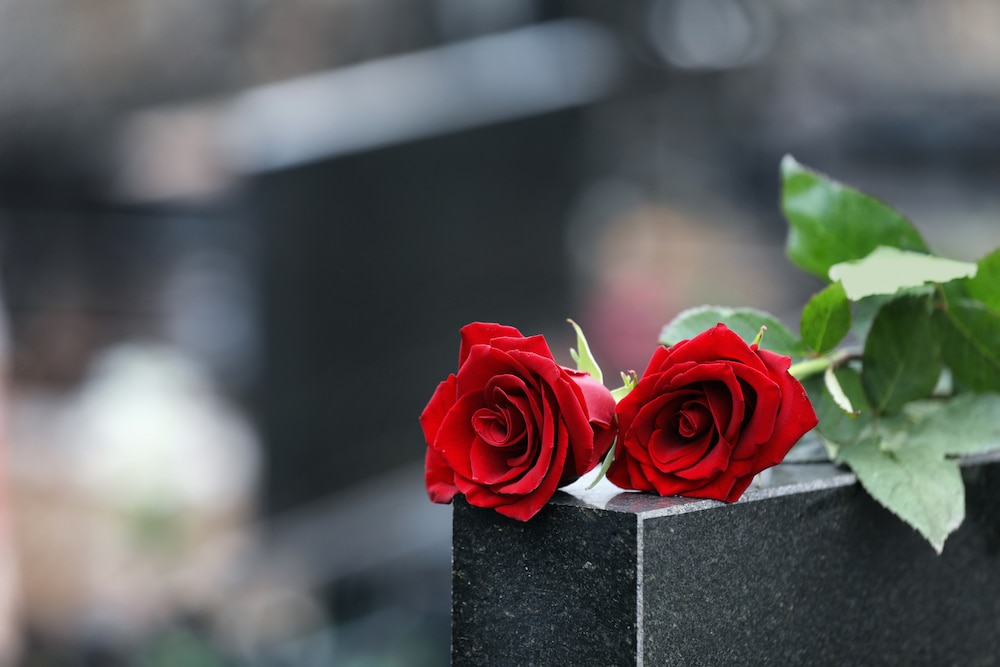
Personal experience
Ministry with CFCS has had a lasting effect on Pereira, who said he can’t help but be touched by those he encounters.
Your heart opens, he said. “If you allow that, you relinquish your freedom of your untouched heart for something bigger to be touched by.”
This work has also influenced Pereira’s perspective on death and dying. In a particular way it has deepened his understanding of the virtue of hope inclusive of the “hope for eternal life.”
“Hope is not ‘in some idea,’ but it’s in a person, and that person is Jesus Christ,” he said.
Pereira noted that “when Christ is there in the presence with you in the midst of a suffering family,” that suffering is “directly linked” to Jesus. “He has experienced all of human degradation and triumphed over it,” said Pereira of Jesus. “You begin to realize that’s what hope is.”
This realization also widens one’s perspective. “This doesn’t rest in us, this rests in something greater than us, it rests in God,” Pereira said.
He perceives that, while God’s love and mercy is “unfathomable,” as Paul’s Letter to the Philippians states, “God came to us in Christ in the form of … a slave, meaning a servant.”
“So, God is humble. God is a humble God and in that humility we live and breathe and have our being with God,” said Pereira.
In experiencing this with bereaved families Pereira witnesses how they “respond to that compassion and mercy” of God. This is a source of “great hope” for Pereira. It also informs his “sense of eternal life” in relation to God’s “unimaginable understanding” for people and “the suffering of humanity.”
“It gives me great hope that everything we hear about the love of God is not only true, but beyond our understanding of how true it is,” said Pereira.

